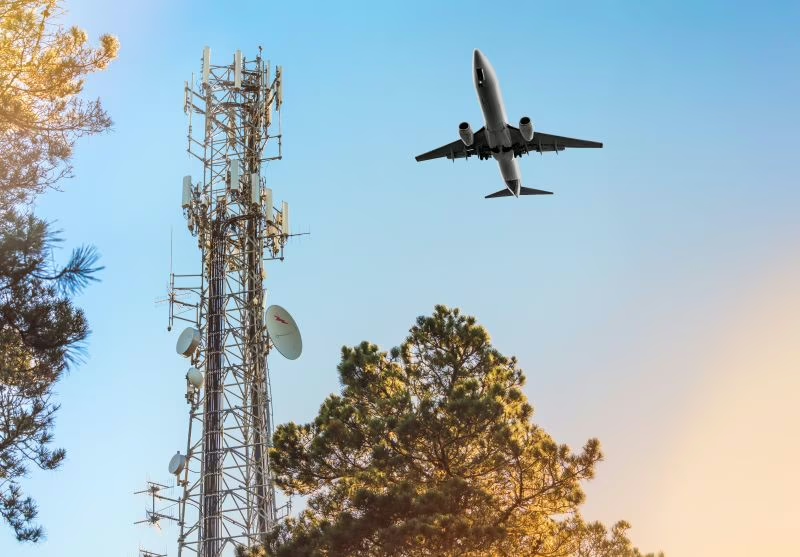
China Airlines has told the FAA that supply chain issues will prevent the carrier from upgrading some radio altimeters (radalts) by a proposed deadline—a development that an industry trade group warned was likely as operators push to meet the agency’s 5G-related retrofit timeline.
In comments on a recent notice of proposed rulemaking (NPRM), the Taiwan-based carrier said it signed an agreement with an unnamed supplier in November 2022. On Jan. 11, the supplier reported that “due to [a] parts shortage,” it cannot deliver needed equipment for the carrier’s Boeing 777 and 747-400 freighters by the FAA’s proposed deadlines for the fleets.
“We can’t control the supply chain issue,” China Airlines told the FAA, asking the agency to consider extending the deadlines or providing case-by-case alternate methods of compliance (AMOC) for affected aircraft.
At issue is the FAA’s plan to ensure aircraft can operate safely around airports with new 5G C-band radio towers. A series of compromises with wireless telecommunications providers gave the agency time to assess potential risks to aircraft radalts and related systems that use the absolute altitude data—or height above terrain—they provide. In the meantime, the agency granted AMOCs to specific aircraft/radalt combinations, permitting them to operate at certain airports.
Under an FAA plan introduced in 2022 designed to do away with AMOCs, operators must upgrade their fleets—installing filters or replacing radalts—to meet certain new requirements. The work is being done in phases.
In return, wireless providers agreed to limit power output on some towers and delay bringing others online.
These voluntary mitigations are set to end on July 1. By then, aircraft must be able to safely operate near towers operating at 62dBM—the upper end of the reduced power level agreed to by wireless providers—or face significant flight restrictions, such as not using certain instrument approach procedures.
The NPRM, which applies only to U.S. operators, mandates radalt upgrades by Feb. 1, 2024. But it warns that flight restrictions may be required after June 30 for aircraft that have not been upgraded.
Non-U.S. operators that operate under FAA’s Part 129 rules face similar restrictions and are included in the agency’s phased upgrade plan. When the plan was rolled out last year, IATA voiced concern that U.S.-based operators would be prioritized by suppliers.
“Both the original equipment manufacturers (OEMs) and the [radalt] manufacturers confirmed that supply chain issues inhibit their ability to deliver retrofit solutions in a timely manner,” IATA wrote in a November 2022 letter to the FAA. “At least one of the radalt manufacturers has publicly acknowledged what has long been recognized as a particular challenge for Part 129 carriers: their priority is supplying the U.S. (Part 121) airlines.”
Comments on the NPRM from Lufthansa suggest supply-chain issues are not universal. The German carrier confirmed its upgrades will cost $52,000 per aircraft for retrofits of existing radalts and $80,000 per aircraft for full replacements. The airline’s comments do not reference supply-chain issues.

